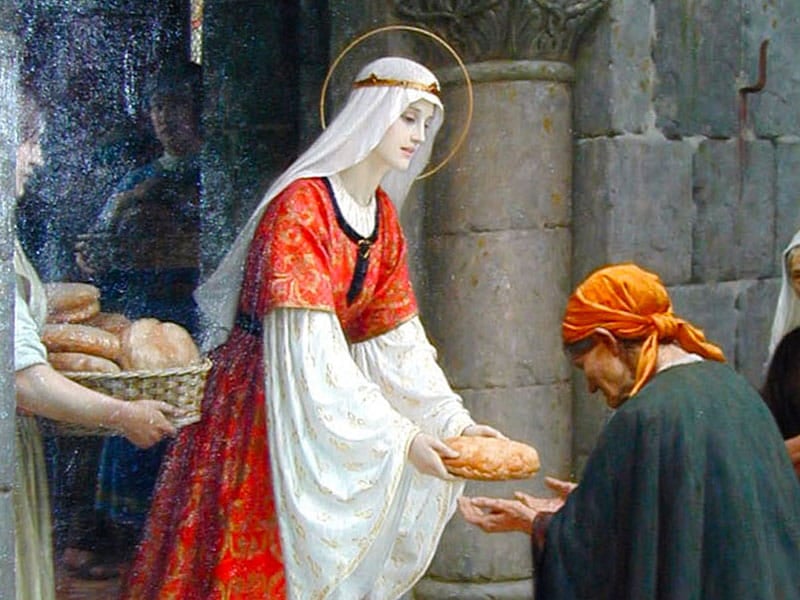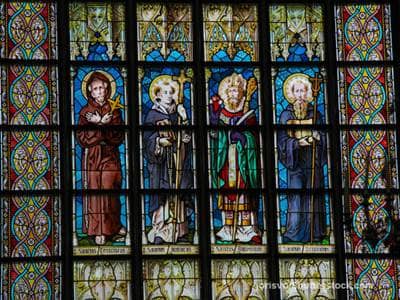St. Elizabeth of Hungary (1207-1231)

In her short life Elizabeth manifested such great love for the poor and suffering that she has become the patroness of Catholic charities and of the Secular Franciscan Order. The daughter of the King of Hungary, Elizabeth chose a life of penance and asceticism when a life of leisure and luxury could easily have been hers. This choice endeared her in the hearts of the common people throughout Europe.
At the age of 14 Elizabeth was married to Louis of Thuringia (a German principality), whom she deeply loved; she bore three children. Under the spiritual direction of a Franciscan friar, she led a life of prayer, sacrifice and service to the poor and sick. Seeking to become one with the poor, she wore simple clothing. Daily she would take bread to hundreds of the poorest in the land, who came to her gate.
After six years of marriage, her husband died in the Crusades, and she was grief-stricken. Her husband’s family looked upon her as squandering the royal purse, and mistreated her, finally throwing her out of the palace. The return of her husband’s allies from the Crusades resulted in her being reinstated, since her son was legal heir to the throne.
In 1228 Elizabeth joined the Secular Franciscan Order, spending the remaining few years of her life caring for the poor in a hospital which she founded in honor of St. Francis. Elizabeth’s health declined, and she died before her 24th birthday in 1231. Her great popularity resulted in her canonization four years later.
-
Our Lady of Mount Carmel
-
St. Maria Goretti (1890-1902)
-
St. Agatha (d. 251?)
-
St. Adrian of Canterbury (d. 710)
-
St. Thomas the Apostle
-
Blessed John Francis Burte and Companions (d. 1792; d. 1794)
-
St. Adalbert of Prague (956-97)
-
Assumption of Mary
-
St. Gregory Grassi and Companions (d. 1900)
-
Sts. Pontian and Hippolytus (d. 235)


